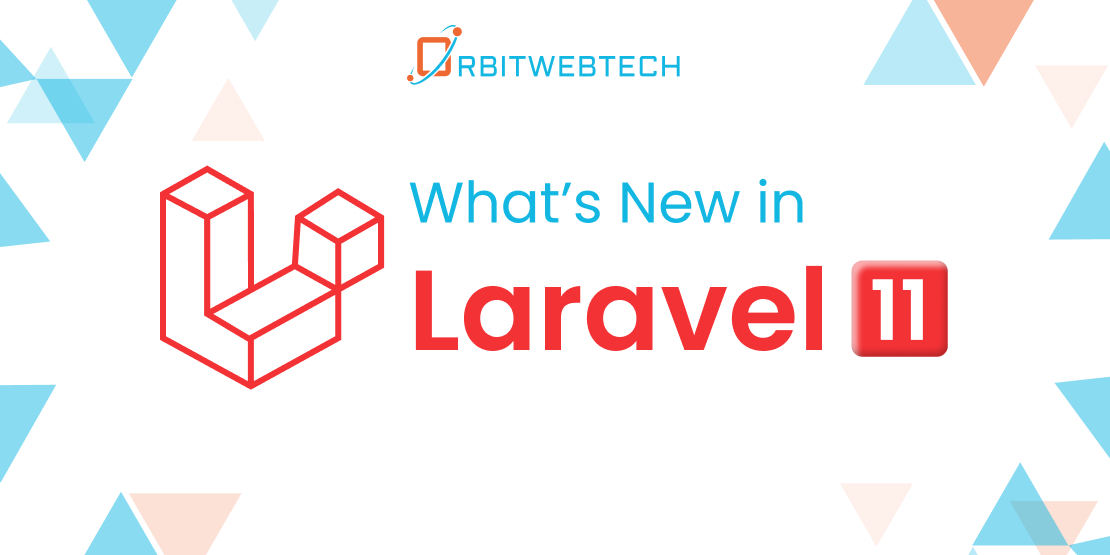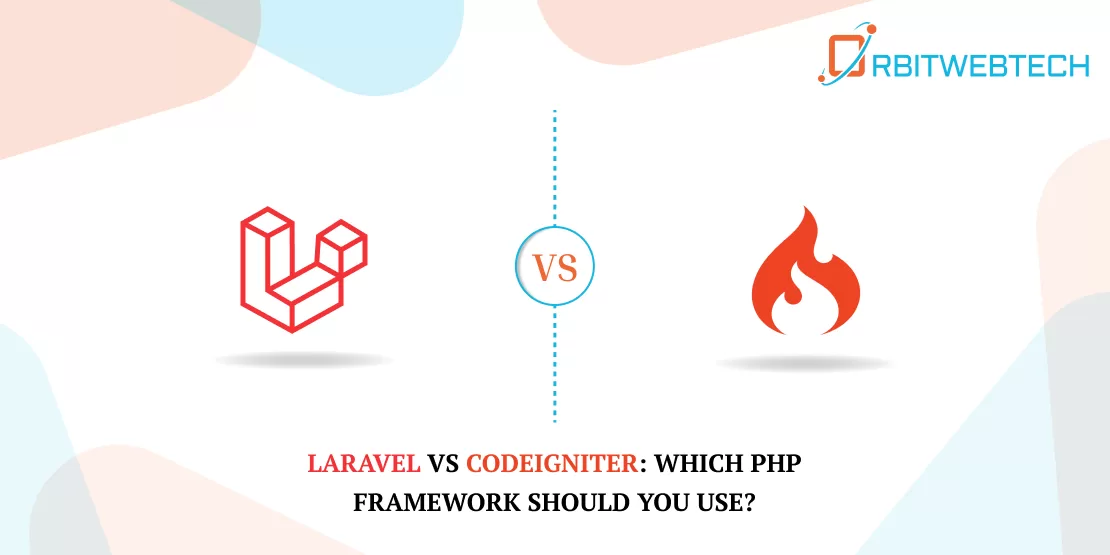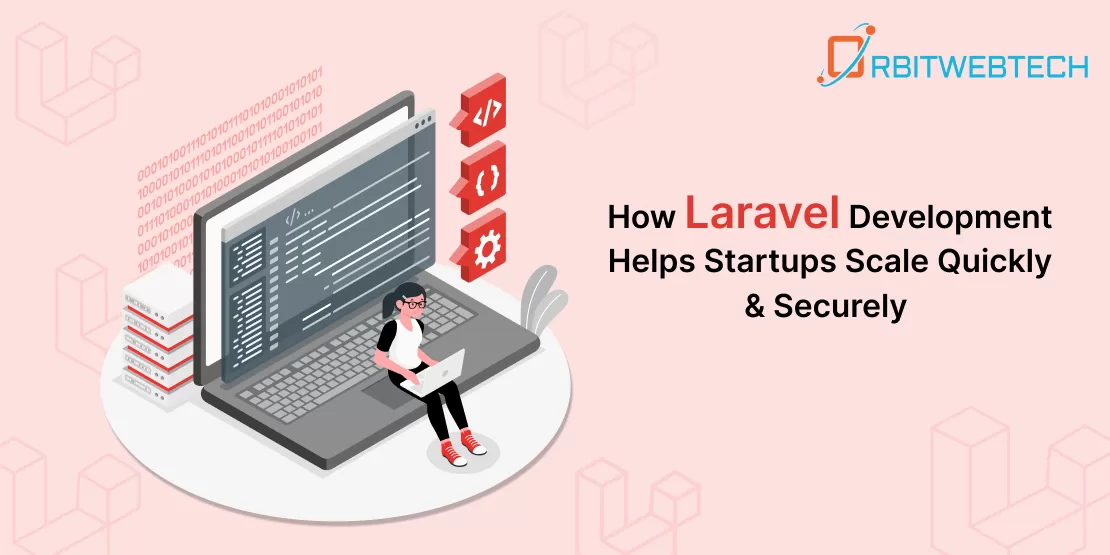
What’s New in Laravel 11: Laravel stands out as the go-to choice for business owners who prioritize the security of their web application development. In line with this commitment, the Laravel core team has unveiled a significant update in the form of Laravel 11, which brings a host of impressive features to this popular PHP web application framework.
Here we are once more to provide you with the most recent information about the latest features and enhancements in Laravel 11. We’ll discuss the updates and features that are worth considering for your business. These aspects will also assist you in making an informed decision about whether to upgrade your current Laravel installation to the latest version.
Laravel 11 Release Date
The latest information on Laravel’s official website, according to the Support Policy, indicates that Laravel 11 is scheduled to release its latest version on February 6, 2024. It is worth noting that Laravel’s core team adheres to the Semantic Versioning methodology, which means major updates to the framework are typically launched annually during the first quarter.
Nonetheless, this doesn’t imply that your current applications require an immediate upgrade to the most recent Laravel release.
The Laravel framework received its latest LTS (Long Term Support) release with version 6. Laravel supports each major version for a period of two years, allowing you ample time to review and update your current codebase as needed.
According to the official Laravel documentation, Laravel 10 has scheduled bug fixes until August 6, 2024, and will have security updates available until February 4, 2025.
Laravel 11: Explore the Latest Features and Updates
The Laravel team acknowledges the significance of staying up-to-date with the latest system features and enhancements. They commit to offering top-notch solutions to both developers and business owners.
This is why opting for the most recent iteration of the framework or its individual elements is consistently the recommended approach. The same principle applies to the latest release of Laravel, version 11, which boasts numerous enhancements that can have a positive impact on your business across various aspects.
Let’s explore the latest features and updates introduced in Laravel 11 for this year.
No Support For PHP 8.1 in Laravel 11
The most significant change introduced in Laravel version 11 is the discontinuation of support for PHP 8.1. We base this decision on the fact that by the time Laravel 11 releases, PHP 8.2 will have achieved full stability, and PHP 8.3 will have also reached a stable state.
With two enhanced versions currently available in the market, little demand exists for an outdated PHP 8.1. Nevertheless, there is no strict requirement for an immediate shift to the most recent version; you have the option to adopt a comprehensive testing strategy instead.
You can consider a phased approach for updating your existing applications, but opting for the most current version is an excellent decision.
More Minimalistic Application Skeleton
Laravel 11 features a more streamlined application structure. The goal is to reduce the amount of redundant code that needs to be managed. This approach is advantageous for both business owners and developers, as it results in more efficient development processes.
Discussing the extensive alterations, they can be summarized as follows.
- In the ‘AuthServiceProvider,’ the framework automatically discovers and removes the ‘$policies’.
- You no longer need ‘SendEmailVerificationNotification’ in the ‘EventServiceProvider’ since the base ‘EventServiceProvider’ registers it. Additionally, you’ll notice that Laravel now enables auto-event discovery by default.
- The ‘BroadcastServiceProvider’ is no longer required, and as a result, we have removed it. The framework no longer automatically loads the routes/channels.php file.
- Improving ‘RedirectIfAuthenticated’ is facilitated by the framework’s core functionality.
- The “Authenticate” middleware no longer invokes the “redirectTo()” method for JSON routes, eliminating the need for redundant ternary checks.
- We removed the ‘EncryptCookies,’ ‘PreventRequestsDuringMaintenance.php,’ ‘TrimStrings,’ ‘TrustHosts,’ ‘TrustProxies,’ ‘ValidateCsrfToken,’ and ‘ValidateSignature’ middleware from the skeleton structure.
- The Custom Artisan functionality is seamlessly integrated into Laravel 11, eliminating the need for manual ‘load()’ method calls from the console.
- The removal of the routes/console.php file signifies a significant change. Register closure-based artisan commands exclusively within the console kernel.
- We’ve merged several additional migrations into a unified file or eliminated them.
- The ‘AuthorizesRequests’ and ‘ValidatesRequests’ traits have been eliminated from the foundational controller.
- The bootstrap/app.php file has been streamlined, currently containing just three lines of code.
- Laravel version 11 has removed the exception handler.
The New Dumpable Trait – (dump () and dd () from your objects)
The primary goal of this pull request is to substitute the existing dd and dump methods found in the majority of Laravel classes. Additionally, it aims to implement a novel Dumpable trait.
Furthermore, this trait empowers Laravel users and package creators to seamlessly integrate debugging functions into their classes. To illustrate how it can be employed, let’s explore an example:
Furthermore, the need for adjustments in method signatures targets this particular pull request for Laravel version 11.x.
To ensure uniformity throughout the entire codebase, the inclusion of the $args in the debugging methods has been implemented. Nonetheless, it remains the favored approach for the Laravel 11.x version.
foo()->bar();
// After:
$address->foo()->dd()->bar();
Model::casts() Method Live in Laravel 11
In the most recent release of Laravel, Model casts have undergone a significant change by transitioning from a property to a method definition. With this method-based approach, it opens up the possibility to incorporate additional functionalities, like directly invoking other methods within the casts.
In the context of Laravel, it is necessary to specify attribute casting within an Eloquent model, as demonstrated below.
class User extends Model
{
protected $casts = [
’email_verified_at’ => ‘datetime’,
];
}
With Laravel 11, you have the ability to define your casting using the ‘casts()’ method within your model. This allows you to utilize static methods from the class responsible for the casting, as demonstrated below.
class User extends Model
{
protected function casts(): array
{
return [
‘foo’ => AsCollection::using(FooCollection::class),
];
}
}
You can now specify your casts as an array, as shown below.
class User extends Model
{
// Even in the old $casts property!
protected $casts = [
‘foo’ => [AsCollection::class, FooCollection::class],
];
protected function casts() : array
{
return [
‘foo’ => [AsCollection::class, FooCollection::class],
];
}
}
The ‘casts()’ method takes precedence over the ‘$casts’ property.
Also, These non-breaking changes will have no impact on your existing codebase when you make the transition to Laravel 11.
Config Changes
In older Laravel versions, multiple config files were present, but Laravel v11 eliminates these files and cascades all the config options. The ‘.env’ file now includes all the options you wish to set or configure.
Moreover, in conjunction with Laravel 11, a novel ‘config:publish’ command has been introduced, offering you the ability to retrieve any necessary configuration settings.
After reintroducing these options, the newly implemented cascade functionality empowers you to eliminate any configurations you do not wish to personalize. This ensures a more efficient and custom-tailored configuration process. For instance, in a typical scenario, executing ‘artisan config:publish database’ generates a dedicated configuration for the database.
Efficient file management, exactness, and seamless organization.
// To publish all the config files
php artisan config:publish
// Specific config file
php artisan config: publish database
Slimmed Default Migrations
In Laravel version 11, when initiating a fresh Laravel project, the standard migrations originally dated from 2014 and 2019 will experience a substantial restructuring. Rather than being distributed across numerous migration files, these migrations will now be combined into just two files.
Enabling developers to commence a fresh Laravel project with a well-organized and simplified database/migrations directory will lead to a more efficient and manageable development process, ultimately enhancing the overall project experience and maintainability.
Confused! About Upgrading To Laravel Version 11?
Hire Laravel developers USA with extensive industry experience to craft cutting-edge Laravel solutions that maximize the potential of your project.
Console Kernel (Removed)
After eliminating the HTTP Kernel, the Console Kernel is likewise eliminated, and, instead, a fresh method is introduced. This signifies that, instead of having a dedicated Console Kernel file, developers will assume the responsibility for explicitly specifying their console commands within the routes/console.php file.
The routes/console.php file has traditionally served as the location for defining Artisan commands using closures. However, a notable shift has occurred, where it now takes on a central role in the registration of all console commands. This modification has been implemented to streamline the organization of Laravel applications and provide a more straightforward and unified method for overseeing console commands.
Laravel’s decision to eliminate the Console Kernel and transition the command declarations to routes.console.php is intended to optimize the configuration of the application and reduce superfluous files. This fresh methodology empowers developers to maintain a well-organized and consolidated catalog of console commands, simplifying their management and upkeep during the development lifecycle.
Changes related to routes
In the traditional Laravel setup, you will find two main route files: console.php and web.php. If you want to include API routes, you need to explicitly enable them by executing the ‘php artisan install:api’ command. This will provide you with the API routes file and enable Laravel Sanctum functionality.
In a similar vein, when it comes to websocket broadcasting, you have the option to utilize the ‘php artisan install:broadcasting’ command. This particular command is designed to configure essential files and settings required to enable websocket broadcasting within your Laravel applications.
These adjustments collectively represent a significant transition towards a modular and customizable application framework.
How To Install Laravel 11
To install Laravel version 11, you need to begin by including the ‘-dev flag’ while conducting the installation process. Laravel can be configured to retrieve and set up exclusively the main branch from the ‘laravel/laravel’ repository.
Laravel new hello-world-dev
If you have a preference for a manual installation process, your best option is using Composer.
composer create-project -prefer-dist laravel/laravel hello-world dev-master
Why Should Businesses Upgrade to Laravel 11?
There are multiple compelling reasons to consider upgrading your existing Laravel application to the latest Laravel 11 version. Orbitwebtech as a reliable Laravel Development Partner, is committed to delivering the advantages that come with migrating to the most recent Laravel version 11. Let’s explore these benefits.
- Improved Performance:
Experience improved performance with faster routing, optimized database queries, and enhanced caching mechanisms, resulting in a significant boost to your application’s speed and efficiency.
- Enhanced Developer Experience:
Focusing on enhancing the developer experience, Laravel 11 elevates it to a higher standard by offering enhanced documentation, error handling, and debugging tools, resulting in a more seamless and enjoyable development journey. In combination, these improvements contribute to accelerated development and more effective outcomes for your business.
- Security Upgrades:
Security is a pivotal aspect in all web development projects for businesses. Laravel 11 incorporates top-notch security enhancements and best practices to safeguard your applications and data effectively.
- Blade Templating Enhancements:
Blade, the Laravel templating engine, receives significant enhancements in this latest release. These improvements provide developers with increased flexibility and enhanced capabilities for creating aesthetically pleasing and reusable views for their applications.
- Multiple New Features and Tools:
Laravel 11, the most recent version, brings a host of fresh features and tools that aim to simplify intricate tasks. With improved authentication choices and a more efficient approach to API development, Laravel 11 equips your development team to create robust applications with increased efficiency, greatly enhancing your project’s success.
- Backward Compatibility:
One of the primary considerations that render it advantageous for businesses to transition to the latest Laravel 11 iteration is its emphasis on backward compatibility. This guarantees a smooth transition for upgrading your current Laravel applications to the latest Laravel version 11 with minimal hassle.
How to Contribute to Laravel 11’s New Features and Bug Fixes
If you have expertise in Laravel development, you can make meaningful contributions to the Laravel community by addressing and resolving the issues you’ve encountered during your work on your Laravel project. Additionally, you can create and contribute an exceptional new feature to the upcoming Laravel v11 version. This process involves taking the following steps.
Visit the Laravel 11 GitHub Page. In this context, reviewing Pull Requests can provide valuable insights into the resolved issues and newly incorporated features.
Select one bug or feature you consider a pain point when working on your
- You can resolve and create a solution that best suits your problem in your Laravel project.
- Submit the Pull Request to the laravel/framework repository, gather feedback, make enhancements, and aim for successful merging.
Note: To ensure the successful integration of your feature or bug fix, remember that it should positively contribute to the Laravel framework without imposing undue burden on the core Laravel team or its creator, Taylor Otwell, in the future.
Conclusion
This sneak peek offers a glimpse into what we can anticipate in the upcoming Laravel version 11. However, it’s important to note that this provides just a glimpse of what the Laravel 11 release has in store. Numerous additional updates and features will be available to look forward to when it arrives in February 2024. If you are a business owner facing uncertainty about upgrading to the Laravel 11 version, consider reaching out to a reputable Laravel Development Company like Orbitwebtech. They can provide you with a comprehensive assessment of your current Laravel application, enabling you to make an informed decision regarding the suitability of upgrading to the latest Laravel version for your needs.


